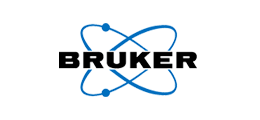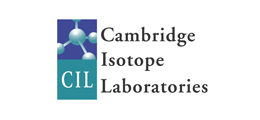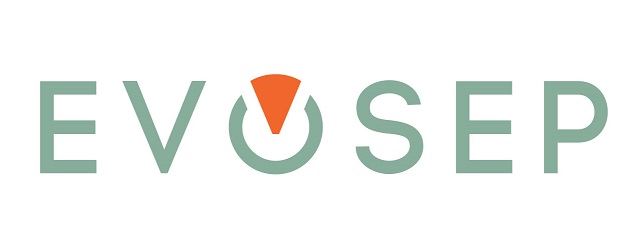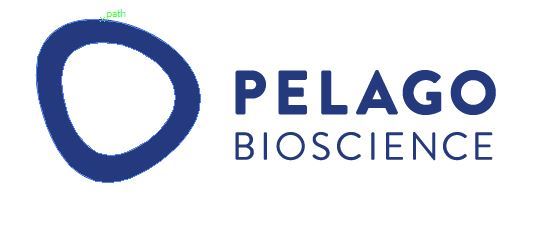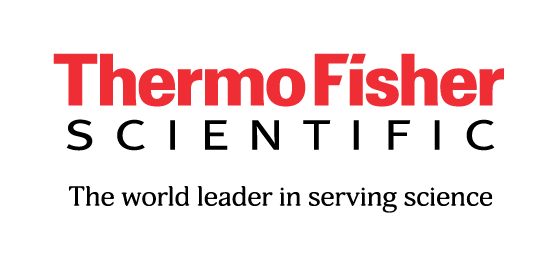Committees |
HUPO activities are supported and lead by a number of committees. Committees are composed of HUPO members and Council members. Members with an interest in serving on a committee are invited to email a letter of interest to HUPO Office. 2025 Awards Judges/Committee
The Awards Committee shall annually solicit, review and vote on the nominations of individuals submitted by the membership to honor deserving members of the proteomics community world-wide. It is also responsible for raising the funds to be re-distributed to award winners.
MEMBERS Byron Baron, Malta Early Career Researcher (ECR) CommitteeAt HUPO 2015 in Vancouver, the inaugural meeting of the HUPO Early Career Researcher (ECR) Initiative was launched. This HUPO initiative is motivated by the firm intent to transmit the HUPO ideals to the next generation of proteomic leaders who are involved in many of the varied B/D-HPP teams and HPP pillars. Mentoring represents the strongest link between generations of scientists and so, in the context of the initiative, the 14th World HUPO Congress in Vancouver hosted an entire day dedicated to mentoring. The HUPO Mentoring Day was held on Sunday 27th September 2015 and involved participation from many of our past and present proteomics leaders. The HUPO Mentoring Day was structured as lectures and colloquia “brain-storming” sessions focused on transmitting to young scientists an awareness of proteomics in time and society along with concrete examples and tips necessary for one to build a career in proteomics. During the day, young scientists had the opportunity to hear from world-renowned scientists from a wide variety of science, technology, and business fields. Together with the group of ECRs, these scientists reflected on their past education, careers, field, choices, work histories, and what an early career scientists needs to know today in order to reap a rewarding future career in science and technology. The “mentors” shared their personal stories and their creative ways of using science, technology, and the choices they made in their careers and everyday lives. Further, also in the context of the initiative, Vancouver 2015 hosted the first HUPO ECR manuscript competition. This part of the ECR Initiative was intended to create a platform for talented young scientists to present and highlight their recent work in the form of a scientific manuscript. The manuscript competition gives the field a fresh perspective and provides an opportunity for these researchers to present publication-quality work in an international forum. Original scientific manuscripts submitted for the competition were reviewed by a jury and three winners were selected and invited to present their work during the congress along with a monetary prize. These two ECR activities underpinned the launch of the ECR Initiative at Vancouver 2015. Many more will come to engage the next generation of proteomic leaders from the varied B/D-HPP teams and pillars, through strength in both proteomics and biology, which is paramount to the continuation of the HUPO ideals. View the ECR Annual Report 2023For further information on ECR activities please contact: Education and Training Committee (ETC)The Education and Training Committee (ETC) is dedicated to advancing the professional growth and scientific expertise of HUPO members. We offer a diverse array of educational programs, including workshops, courses, and tutorials, designed to enhance skills, knowledge, and networking opportunities in the proteomics community. The ETC also supports career development in mass spectrometry-focused academia and industry. Our commitment is to deliver up-to-date, relevant training that empowers our members in their current and future scientific endeavors. Co-chairs: Justyna Fert-Bober and Giuseppe Palmisano ETC members are expected to:
Since 2019 Ben Collins is a Reader (equiv. Assoc. Prof.) in the School of Biological Sciences, Queen’s University of Belfast, UK. His research focuses on broadly on 3 topics: (i) method development and applications in data independent acquisition mass spectrometry; (ii) method development and applications in the analysis of protein interaction networks and protein complexes; and (iii) applications of these strategies in host-pathogen biology and innate immunity. Ben Collins’s PhD was completed at University College Dublin in 2009 where he remained for 1 year as the Agilent Technologies Newman Fellow (postdoctoral) in Quantitative Proteomics. He moved to the Institute of Molecular Systems Biology at ETH Zurich in Autumn 2010 as postdoctoral researcher under the supervision of Prof. Ruedi Aebersold, where his research focused on the application of quantitative interaction proteomics in signaling and the development of DIA/SWATH mass spectrometry. Following this Ben Collins was a Group Leader and SNF Ambizione Fellow at IMSB, ETH Zurich with a focus on applying methods developed as a postdoc to relevant problems in host-pathogen biology.
Blandine CHAZARIN is currently a postdoctoral scientist at ProtMic Lab in Belgium. Previously she studied biology at Paul Sabatier University (Toulouse, France) prior advanced training in proteomics and mass spectrometry at Lille 1 University (Lille, France). She obtained a PhD using mass spectrometry to better understand hibernating brown bear physiology to path the way of therapeutic against muscle atrophy at LSMBO (Strasbourg, France). She is the former president of the youth club of the proteomic French Society and organized yearly meeting dedicated to young scientists in proteomics. Now, she is involved in postdoctoral scientist society at Cedars-Sinai and developed single cell proteomic approach applied to cardiac cells proteome analysis.
Brian Searle is an Assistant Professor at the Ohio State University Medical Center in the Department of Biomedical Informatics and a member of the Pelotonia Institute for Immuno-Oncology (PIIO). Brian received his chemistry BA at Reed College in 2001. In 2004, he co-founded Proteome Software with Mark Turner and Dr. Ashley McCormack to produce and distribute cutting-edge data analysis software for proteomicists. In 2014, he returned to academia to earn his PhD with Dr. Michael MacCoss at University of Washington, where he developed methods to detect and quantify proteins and phosphosites using mass spectrometry. His lab at PIIO spans the intersection of proteomics, mass spectrometry, bioinformatics, and technology development to study human genetic variation in the backdrop of cancer.
Deepti Jaiswal Kundu, works as a Scientific Curator at EMBL-EBI, Cambridge, UK. Before joining EMBL-EBI, she studied botany, psychology, and bioinformatics in India, before doing a PhD in Cheminformatics in the Czech Republic. After successfully defending her thesis in 2015 Deepti Jaiswal Kundu moved to Cambridge, UK and took a break of briefly 2 years to have daughter. She joined EBI in 2018. As a Scientific Curator, Deepti Jaiswal Kundu is responsible to check and validate new datasets submitted to the PRoteomics IDEntifications Database (PRIDE) - the world’s largest public database dedicated to mass spectrometry-based proteomics. Furthermore, she curates the datasets for further reanalysis and integration to other bioinformatic resources in EBI.
Dr. Giuseppe Palmisano is currently a Professor at the Department of Parasitology, University of São Paulo, São Paulo, Brazil. He obtained his Ph.D. degree in mitochondrial physiopathology in 2008 from University of Bari under the supervision of Prof. Sergio Papa and then completed a postdoctoral fellowship at the University of Southern Denmark, Odense, under the supervision of Prof. Martin R. Larsen, developing methods for PTMs analysis in different biological samples. His current area of research is method development and application of proteomics to parasite infections (Chagas disease, Leishmaniasis and Placental Malaria) with a particular focus on regulatory mechanisms of PTMs-mediated cellular signals.
I am an Assistant Professor at Cedars-Sinai Heart Institute, and my research is focused on molecular and cellular mechanisms of heart failure (HF) in general population and in the immunopathogenesis of heart disease in the rheumatoid arthritis (RA) patient. I have a broad background in biochemistry, with specific training and expertise in proteomics and mass spectrometry and secondary immunology research. I am a pioneer in the understanding of arginine deiminases and protein citrullination’s contribution to neo-antigens production. My lab is interested in targeting the citrullinated proteins associated with the HF disease and finding the functional significance at least, in a subset of biologically important modifiable cardiac proteins. I claim that cardiac specific citrullinated proteins yield neo-antigens production and can become additional targets in epitope spreading of autoimmune responses. This will allow to create new diagnostics and prognostic tests for clinical use.
Qingsong Lin is a Principal Research Fellow (Research Associate Professor) of the Department of Biological Sciences, National University of Singapore (NUS). He is the Director of the Protein and Proteomics Centre (PPC), NUS. Besides, he is the President of the Singapore Society for Mass Spectrometry (SSMS) since 2017. His expertise lies in applications of mass spectrometry in proteins and proteomics, extended to other biomolecules. His research interests are mainly in disease biomarker discovery and disease mechanism, drug target identification and mechanism of action studies, as well as the application of mass spectrometry and quantitative proteomics technologies to address various biological questions.
Sayantani Chatterjee, PhD (Australia) Sayantani Chatterjee is currently a posdoctoral research fellow in the Analytical Glycoimmunology Group from Macquarie University in Sydney. Her research encompasses cancer glycoimmunology. Previously, she was a postdoctoral associate at Boston University and her research focused on investigating viral glycoproteomics, particularly of Influenza and SARS-CoV-2, using ion mobility mass spectrometry. She is originally from India where she received her BSc in Microbiology (Honours) (2015) from St. Xavier’s College (Autonomous) and moved to Australia to pursue Master of Research (2017) and subsequently PhD (2021) in the Analytical Glycoimmunology Group focusing on mannose-terminating glycoproteins involved in human health and disease. She has been a HUPO ECR member since 2022 and was also the Vice-Chair Logistics (2-year term) for the 22nd and 23rd HUPO World Congresses.
Dr Teck Yew Low is an associate professor and senior research fellow located at the UKM Medical Molecular Biology Institute (UMBI) which is affiliated to the National University of Malaysia (UKM), leading the cancer proteomics and metabolomics group. Before that, he worked at Netherlands Proteomics Centre (NPC) in Utrecht University in the Netherlands. His research interests include bridging (phospho)proteomics with clinics and cancer proteogenomics.
Yansheng Liu is an Associate Professor in the Department of Pharmacology at Yale University School of Medicine. He is also a group leader in quantitative proteomics at the Yale Cancer Biology Institute. Dr. Liu received his Ph.D. in Biomedical Sciences from the Chinese Academy of Sciences in 2011. He then completed a 6.5-year post-doctoral training in the laboratory of Dr. Ruedi Aebersold at ETH Zurich, Switzerland. Dr. Liu joined the faculty at Yale in December 2017. The Liu Lab has particular research interests in protein post-translational diversity (modification and turnover), cancer aneuploidy, and cell signaling transduction. The Liu Lab additionally aims to contribute to the development of multiplexed, high-throughput data-independent acquisition mass spectrometry (DIA-MS) technique. View the 2023 Annual Report of the Education and Training CommitteeFinance CommitteeThe Finance Committee shall consist of the President, the immediate past President, the President-Elect, the Treasurer and the immediate past Treasurer. The Treasurer shall serve as chair of the Finance Committee. The Finance Committee shall meet at least each calendar quarter. All requests for expenditures shall be submitted to the Finance Committee with an explanation of the request and its budget/cost. The Finance Committee will evaluate proposals and will forward its recommendations to the Executive Committee. The Executive Committee will decide how the money is allocated and what projects will be supported. This process ensures that checks and balances are utilized throughout and enforces unbiased financial decisions.
Marketing and Outreach CommitteeThe HUPO Marketing and Outreach Committee (MOC) is responsible for promoting proteomics via the HUPO brand to a wide audience using a range of tools and activities. The MOC promotes and disseminates outreach activities/material, such as proteomics presentations/seminars and workshops organized by other committees (e.g., ECR, ETC, HPP). To assist in these efforts, the MOC generates marketing materials for distribution using relevant contacts (e.g., clinicians, public health officials) and social media platforms, to reach audiences from all backgrounds. The MOC actively engages with third-party organizations to increase the profile of proteomics, for both visibility and potential streams of income and sponsorship. The MOC activities aim to increase the number of HUPO members, champion existing HUPO members, and support visibility of proteomics. This main focus areas of this Committee include: 1. Website 2. Branding 3. Social Media 4. Promotional Outreach 5. Humans of HUPO. The committee reports to the HUPO Executive Committee, providing updates on ongoing activities and future plans.
Nominations and Elections CommitteeThe Nomination Committee shall consist of not less than three (3) and not more than seven (7) individuals (including at least one (1) Councilor). Members of the Nomination Committee shall be elected or appointed, as the case may be, at the annual meeting of the Council. Meetings of the Nomination Committee shall occur at least sixty-seven (67) days prior to the election of Councilors at each annual meeting of Members. The slate of candidates for Councilor offered by the Nomination Committee shall be approved by the Executive Committee not less than sixty (60) days prior to the election. The Nomination Committee shall obtain written agreement from each candidate, make nomination recommendations and submit a list of candidates along with a short biographical sketch of each candidate to the Executive Committee for approval. The Nomination Committee shall exercise any other powers and duties as the Executive Committee may determine.
Publications CommitteeThe Publications Committee shall interact with the scientific journals and the scientists in the field of proteomics and shall establish and promote the vision of the Corporation with respect to standards in publications related to proteomics. The Publications Committee shall oversee the Website and other electronic bases (e.g., Twitter) established for sharing HUPO news and information with Members and the public.
|

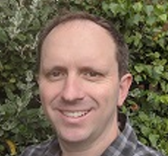 Ben Collins, PhD (United Kingdom)
Ben Collins, PhD (United Kingdom)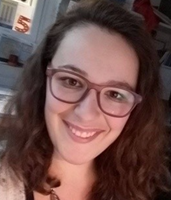 Blandine Chazarin, PhD (United States)
Blandine Chazarin, PhD (United States)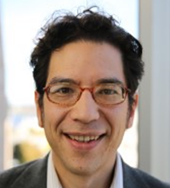 Brian Searle, PhD (United States)
Brian Searle, PhD (United States) Deepti Jaiswal Kundu, PhD (United Kingdom)
Deepti Jaiswal Kundu, PhD (United Kingdom)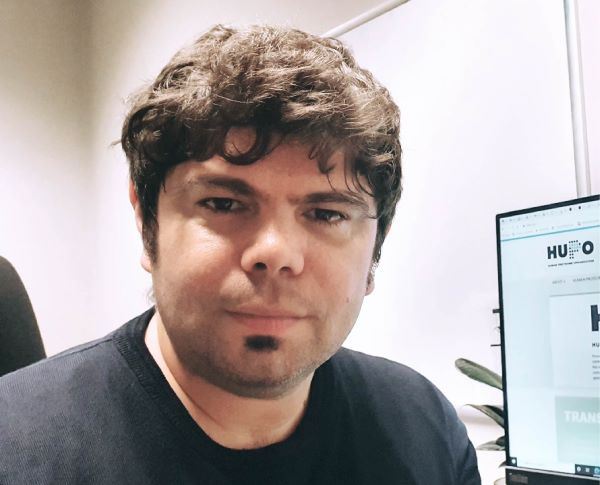 Giuseppe Palmisano, PhD (Brazil)
Giuseppe Palmisano, PhD (Brazil)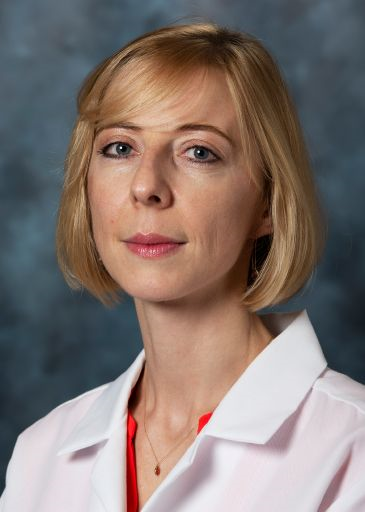 Justyna Fert-Bober, PhD (United States)
Justyna Fert-Bober, PhD (United States)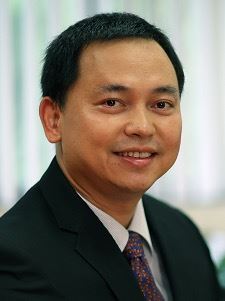 Qingsong Lin, PhD (Singapore)
Qingsong Lin, PhD (Singapore)
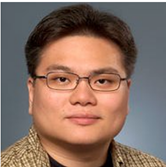 Teck Yew Low, PhD (Malaysia)
Teck Yew Low, PhD (Malaysia)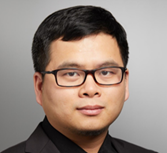 Yansheng Liu, PhD (United States)
Yansheng Liu, PhD (United States)
.png)


